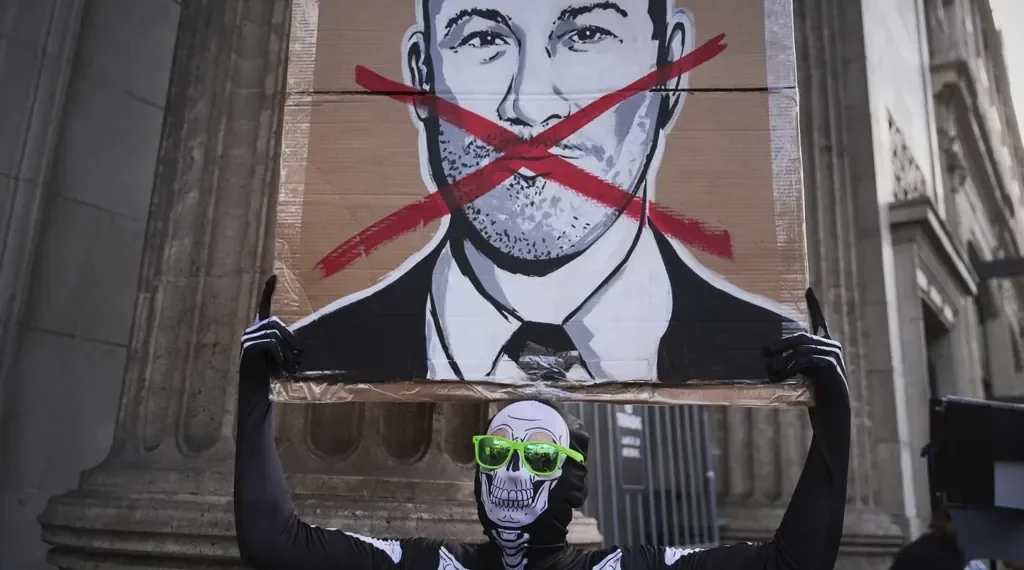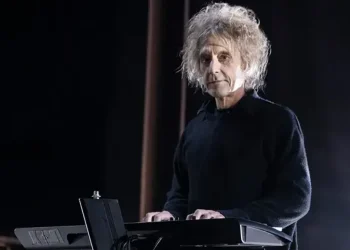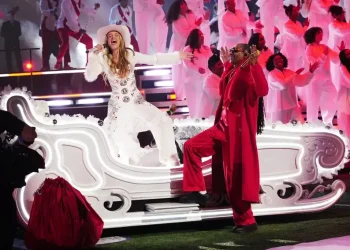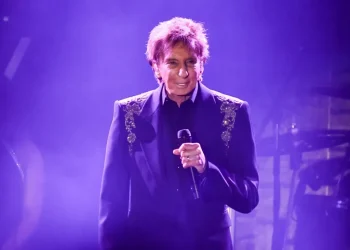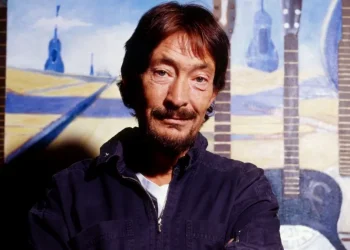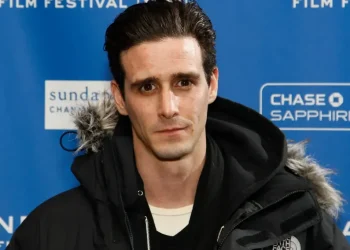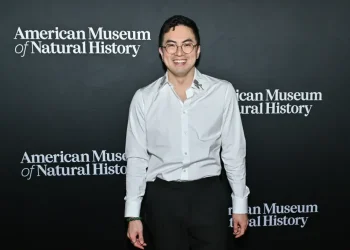Jimmy Kimmel Suspension Renews Global Debate on Free Speech as Comedians Face Political Pressure From U.S. to Egypt, Russia, and Beyond
Published Time: 09-21-2025, 09:15 EDT
Comedy has long been one of the most powerful outlets for free expression, often testing the limits of what societies are willing to tolerate. From satire in authoritarian regimes to late-night television in the United States, comedians continue to find themselves at the center of global debates over free speech.
Bassem Youssef’s Familiar Warning
Egyptian satirist Bassem Youssef, once dubbed the “Jon Stewart of the Arab world,” immediately recognized the familiar pattern when ABC suspended late-night host Jimmy Kimmel.
“My Fellow American Citizens, welcome to my world,” Youssef posted on X (formerly Twitter), drawing a direct comparison to his own experience in Egypt.
Youssef’s show, modeled after The Daily Show, was canceled in 2013 following a military coup that ousted President Mohammed Morsi. His political satire provoked criminal investigations, and he later described Egypt’s climate as “not suitable for a political satire program.” He eventually fled to the United States.
Jimmy Kimmel Suspension Sparks Free Speech Debate
The controversy surrounding Jimmy Kimmel unfolded after remarks he made about conservative reactions to the killing of activist Charlie Kirk. Critics accused Kimmel of misrepresenting the political beliefs of Tyler Robinson, the suspect charged in Kirk’s assassination.
Following Kimmel’s comments, Federal Communications Commission (FCC) Chairman Brendan Carr issued a pointed warning: “We can do this the easy way or the hard way.” Soon after, several ABC affiliates signaled they would not air Jimmy Kimmel Live!, prompting parent company The Walt Disney Co. to suspend the show.
The move ignited a wave of backlash from fellow comedians and free-speech advocates.
“If you care about the Constitution and freedom of expression, this is it,” comedian Marc Maron argued on his podcast. “This is what authoritarianism looks like right now.”
Late-Night Hosts Rally Around Kimmel
Former and current late-night hosts were quick to defend Kimmel.
- Jay Leno, longtime host of The Tonight Show, told reporters: “It’s a comedian talking.”
- Stephen Colbert, speaking on The Late Show, mocked Carr’s assertion that TV programming should reflect “community values.” Colbert quipped: “Well, you know what my community values are? Freedom of speech.”
Their defense underscored how comedy, even when irreverent, remains closely tied to the democratic principle of open discourse.
Comedy as a Global Bellwether
Historically, comedians have faced restrictions under authoritarian regimes, where satire is often viewed as a threat.
- In Russia, satirical puppet show Kukly was canceled in 2002 after mocking President Vladimir Putin. Its network owner, Vladimir Gusinsky, was jailed on embezzlement charges.
- In Iran, comedian Zeinab Mousavi was recently charged with making statements “contrary to public morality.”
- In India, authorities shut down a comedy club earlier this year after comedian Kunal Kamra performed a parody that indirectly referenced a politician.
“Comedy doesn’t change the world, but it’s a bellwether,” comedian Jon Stewart remarked in 2022 at the Kennedy Center, with Kimmel in attendance. “When a society is under threat, comedians are the ones who get sent away first.”
The U.S. Context: A Shift in Media Culture
While Kimmel’s suspension is less extreme than international examples, it signals a shifting landscape.
Former President Donald Trump, long a critic of late-night satire, suggested broadcasters risked losing their licenses if they allowed negative commentary. Carr echoed this sentiment, warning that Kimmel’s suspension may only be “the beginning” of broader media changes.
“This is a massive shift taking place in the media ecosystem,” Carr said. “The consequences are going to continue to flow.”
The shift has fueled debates over “cancel culture” versus “consequence culture,” with opinions divided across political lines.
Reactions Across the Comedy World
Some comedians responded with irony and historical parallels.
- Roseanne Barr, whose sitcom was canceled in 2018 after a racist tweet, remarked on X: “Yeah imagine an administration putting pressure on a television channel to fire a comedian they didn’t like.”
- Elon Musk, speaking at the Conservative Political Action Conference, complained: “They wanted to make comedy illegal. Legalize comedy!”
- Comedian Tim Dillon wrote on Instagram: “I am against Kimmel being taken off the air and against people being shot for their opinions. See how easy it is?”
Even satirical outlet The Onion republished an old editorial calling for “mass censorship,” a tongue-in-cheek jab at the state of free speech.
Punchlines With Power
From Charlie Chaplin’s lampooning of Adolf Hitler in The Great Dictator to today’s late-night television, comedy has often served as a marker of democratic resilience.
“Countries where comedians can’t mock the leader on late-night TV are not really ones you want to live in,” MSNBC host Chris Hayes noted.
As the debate over Kimmel’s suspension continues, one truth remains clear: the stage for free speech often belongs to comedians. Whether in Cairo, Moscow, Tehran, or New York, jokes remain both a cultural mirror and a political flashpoint.
This article was rewritten by JournosNews.com based on verified reporting from trusted sources. The content has been independently reviewed, fact-checked, and edited for accuracy, neutrality, tone, and global readability in accordance with Google News and AdSense standards.
All opinions, quotes, or statements from contributors, experts, or sourced organizations do not necessarily reflect the views of JournosNews.com. JournosNews.com maintains full editorial independence from any external funders, sponsors, or organizations.
Stay informed with JournosNews.com — your trusted source for verified global reporting and in-depth analysis. Follow us on Google News, BlueSky, and X for real-time updates.
